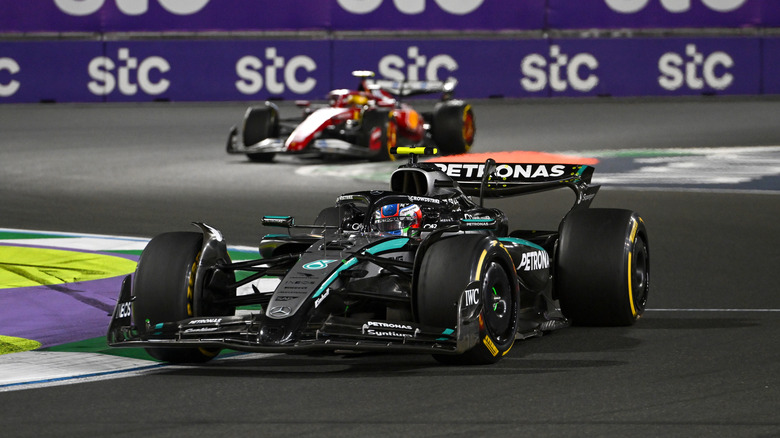The present excessive tide for System 1’s reputation, particularly amongst younger individuals and in the US, is attributed primarily to Netflix’s docuseries “System 1: Drive to Survive.” The plenty have been provided unprecedented entry to the drivers, the staff bosses and the palace intrigue behind the globe-trotting world championship. Nonetheless, like numerous industrial successes earlier than it, executives have seemingly realized the fallacious classes from the wildly widespread docuseries. F1’s mystique that created the preliminary enchantment of “Drive to Survive” has been changed with closely commercialized, curated entry, as displayed by an upcoming documentary known as “The Seat” that follows Mercedes rookie Kimi Antonelli.
It is easy to overlook how controversial the presence of Netflix manufacturing crews was amongst F1’s groups through the 2018 season. Mercedes and Ferrari, the 2 groups competing for the championship, opted out of collaborating within the first season. In some methods, it labored to F1’s benefit. Producers have been compelled to deal with groups additional down the sphere, which gave followers a cause to care concerning the drivers who have been profitable races constantly. It highlighted how small struggles matter in F1 and why scoring a single level or a podium for some groups can really feel like profitable a race. The present’s reputation enticed the front-running groups to get on board.
WhatsApp was apparently instrumental in Antonelli’s transfer to Mercedes
Six years later, the script has been flipped. “Drive to Survive” has arguably change into a caricature of itself, taking inventive liberties to retell the methodical season-long title fights into the nail-biting race-by-race battle to outlive seen behind the sphere. Producers have been now manufacturing moments for drama moderately than providing first-hand perception into the game’s ruthless nature.
Documentaries have merely change into a brand new type of advertising. After shunning the cameras in 2018, the Mercedes-AMG Petronas F1 Crew collaborated with WhatsApp, a staff sponsor, to supply a 45-minute documentary. It was introduced on Monday that “The Seat,” a documentary about how the manufacturing unit staff selected Kimi Antonelli as Lewis Hamilton’s successor final yr, will probably be completely launched on Netflix on Might 5. In keeping with The Hollywood Reporter, Crew Principal and CEO Toto Wolff mentioned:
“Choosing Kimi as our race driver for 2025 was, as “The Seat” paperwork, an enormous resolution. WhatsApp performed an instrumental position on this. It was the engine that stored the whole lot transferring easily and privately, permitting our staff to deal with Kimi’s improvement, talk about progress, and in the end talk our selection. We’re excited to present F1 followers around the globe a novel perception into the method, exhibiting how we arrived at this pivotal second within the staff’s historical past.”
Antonelli’s promotion wasn’t a shock for F1 followers
The trailer for “The Seat” merely comes off as an advert for WhatsApp. Antonelli, an 18-year-old racing prodigy, was the favourite to fill the seat when Hamilton introduced his departure to Ferrari. Whereas it was a monumental roster transfer, it was removed from a shock. The younger Italian was already a member of the Mercedes Junior Crew and was being ready to exchange Hamilton. His most vital impediment to securing the titular seat was getting an FIA Tremendous License, not the transfer itself. With that in thoughts, why watch “The Seat?”
Mercedes is not alone, as each staff has drastically elevated the quantity of in-house content material it produces. Even drivers as soon as seen as standoffish with the media turned the topic of their very own bespoke packages. Amazon Prime Video launched a docuseries about Fernando Alonso, merely titled “Fernando.” Viaplay, F1’s official broadcaster within the Netherlands, produced a trilogy of documentaries about Max Verstappen. The drivers and groups realized the potential of selling themselves in a completely uncritical gentle whereas utilizing the “documentary” label to lend an air of unbiased legitimacy. I am not saying F1 was higher earlier than “Drive to Survive,” simply that it did not perceive why the docuseries was so well-received.


